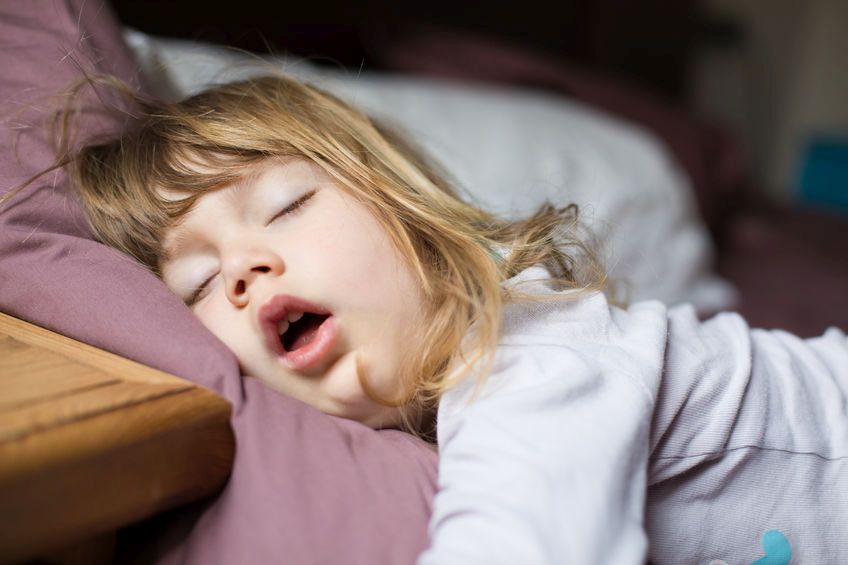In every newborn baby we see it breathing through the nose with the belly going up and down. But many children start breathing through their mouths after only a few months. The nasal breathing is no longer possible due to, for example, swollen adenoid or tonsils or a blocked nose. Mouth breathing may seem harmless, but it is certainly not.

Problem of mouth breathing
If a child continues to breath through their mouth, this has adverse effects:
- It is harmful to the development of the face, teeth and upper respiratory tract. If a child breathes through the mouth frequently for a long time, it affects the development of the face. Chances are that the child develops abnormal facial features in the form of a long, narrow face with narrow mouth, and with smaller airways that remain like this up to adulthood. As a result, this poor (mouth) breathing habit is maintained and long-term health issues can arise.
- In children with mouth breathing, the breathing volume is too large. In fact, they are chronically overbreathing. This triggers a process in the body that endangers the oxygen supply to tissues and organs; this is caused by the so-called Bohr effect. The brain also does not receive enough oxygen, which is detrimental to both the cognitive development and the behavior of the child.
- Breathing through the mouth at night can lead to sleep disturbances with problems such as snoring and sleep apnea. Here, too, oxygen delivery is at stake.
The importance of nasal breathing is well explained in this educational video that concludes with ‘The nose is for breathing. The mouth is for eating’.
Is your child mouth breathing?
As a parent, it is wise for you to observe your children carefully, for example, during homework, playing games, watching TV and sleeping. Also record the time the child breathes through the mouth. If that is forty percent of the time or more, then you should take action.
When it comes to sleep, observe your children:
- Are they mouth breathing while sleeping?
- Are they tossing and turning in bed?
- Do they snore or have breathing stops?
- Can you hear them breathing?
- Do they wake up at night, have nightmares, go the bathroom or are they bedwetting?
- Do they wake up feeling tired, having a dry mouth and or a blocked nose?
If you answered one or more questions with a ‘yes’, your child may have sleep-disorder breathing.
Learning Buteyko
Children also benefit a lot from the Buteyko method. For children and teenagers up to about 14 years we have a special program. Children from about 6 years can do the exercises. These are different from those for adults – the exercises are more active and playful – but the goal is the same: restoring nasal breathing and breathing patterns.
How does your child breath?
Buteyko has developed a simple test which we call the Control pause. Teenagers from about 14 years of age can do this test for themselves. However, with younger children we use a different method: we count their steps while they walk and hold their breath. Please contact us if you want to try this at home.
Is your child mouth breathing?
Please feel free to contact us and request a free consultation. Or read more about the content of the Buteyko course and how to sign up.
